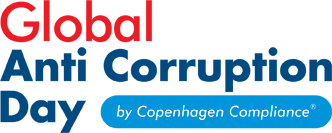WHY SHOULD COMPANIES CARE ABOUT AN ETHICAL BRIBERY AND CORRUPTION WORK CULTURE?
Unethical behaviour presents a clear risk to the image and reputation of the organisation and its sustainability. But, equally, there are clear benefits to adopting an Ethical Culture.
- The benefits of an enhanced reputation and reduced risk of scandal
- Greater trust from shareholders that their investments are being managed with integrity
- Greater customer trust and satisfaction
- Less chance of fines, trade restrictions and prosecution
- Reduced bribery, fraud and corruption expense
- Less management time handling FCPA and UK A reports and issues.
At the 2021 Annual Dialogue on Bribery and Corruption, we examine the critical role of ethical leadership and culture in achieving a global ESG agenda and embedding a holistic approach to risk and compliance processes and activities.
The anti-corruption obligations are part of the regulatory compliance; however, a growing number of Environmental, Social and Governance (ESG) obligations are incorporated into legal mandates.
The EU legislation to introduce mandatory due diligence concerning human rights and environment,
The ESG agenda is a pressure point for an integrated approach.
All companies must recognise that a corporation’s governance framework, compliance culture, and remediation efforts are relevant factors determining whether prosecuting a self-reporting corporation is in the public interest.
At the event, you get structured advice that will reflect on applying the guidelines over the past years to provide a regulatory perspective on how companies can promote good governance and strong compliance cultures and respond to anti-bribery incidents.
- We will examine the vital role of ethical leadership and culture in achieving an ESG agenda and embedding a holistic approach to risk and compliance.
Stakeholder expectations are framed through the lens of an ESG agenda. We will talk about the evolving implementation of this agenda by crucial corporate stakeholders, including investors, particularly concerning integrity (governance) and human rights (social).
‘Gold standard’ procedures to prevent bribery
The interconnectedness of corruption and human rights issues has increased visibility during the pandemic, with opaque supply chains heightening the risk of human rights abuses and corruption. In addition, there is growing international momentum from businesses and institutions to acknowledge the intersections between anti-corruption and human rights agendas and embed human rights in anti-corruption efforts. This session explores how human rights and corruption are mutually reinforcing and need to be addressed in parallel.
Case study
A hypothetical case study will be presented, highlighting the need for adequate procedures to prevent bribery and mitigate human rights risks. This case study forms the basis of the workshop, giving participants practical insights into developing a holistic approach to compliance that addresses corruption, bribery and human rights. Based on case studies, we will evaluate and address the procedures and gaps and examine what measures must be implemented to establish ‘gold standard’ adequate procedures to prevent bribery.
Greater attraction and higher retention of ethical employees and top human talent who wish to be associated with an ethical organisation, thus resulting in improved productivity due to Improved risk management, Less risk of supply chain issues, improved performance and bottom line, Improved sustainability.
Adopting a zero-tolerance policy towards fraud, theft, corruption, and illegal behaviour
Taking appropriate disciplinary action;
- Providing a confidential internal helpline and a confidential external whistleblowing line
- Promoting an anonymous tip-offs line run externally with rewards for information which leads to successful preventions of fraud, theft, corruption or illegal behaviour
- Undertake ethics research via staff culture and values survey to set a benchmark for ethics awareness against improvement targets
- Establishing an Ethics Office/Ethics Officer to manage the internal ethics programme and empower managers at all levels to integrate ethics in their day to day actions and behaviour
- How to setup A Board Ethics Committee
- Moderating Anti Corruption blogs and ethics chat on intranets with practical examples of what is acceptable and what is not acceptable behaviour
- Celebrating local organisational heroes who demonstrate ethical behaviour
Register today: https://www.copenhagencompliance.com/2021-anti-corruption-day/register/


